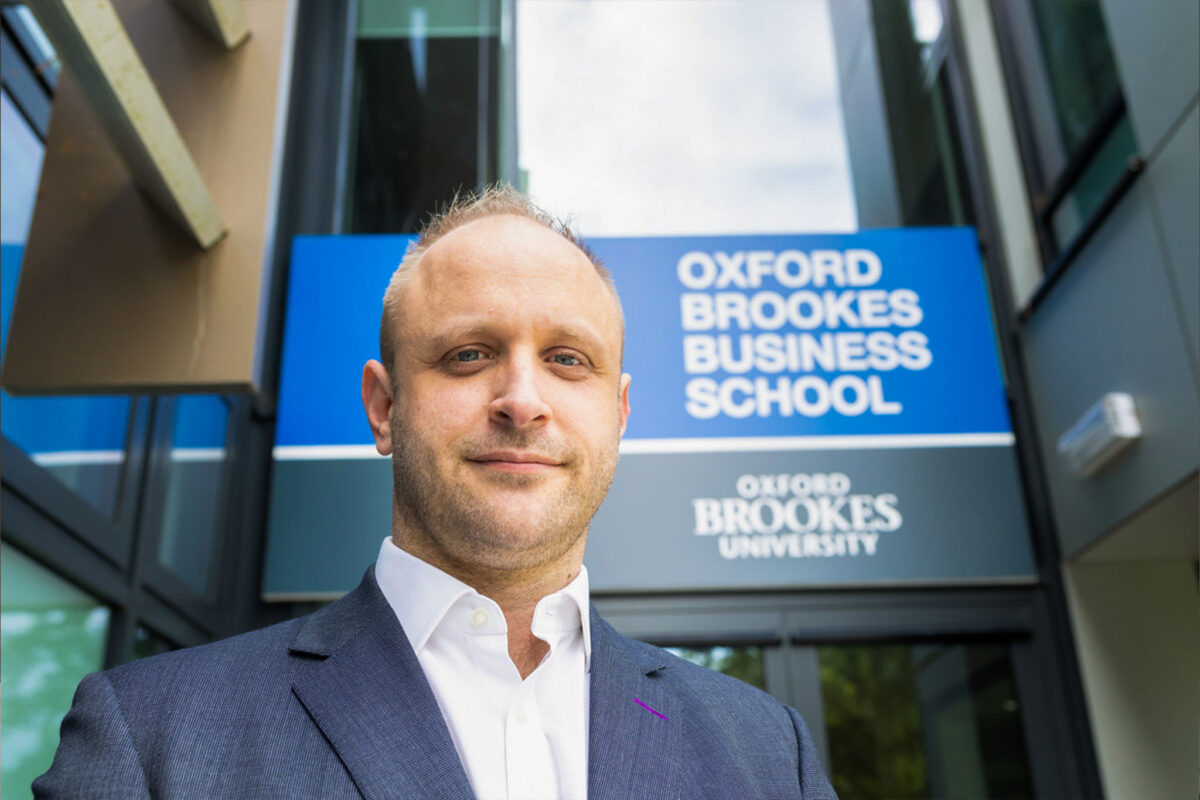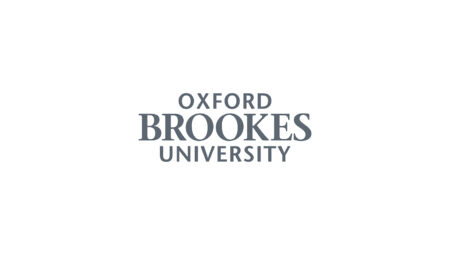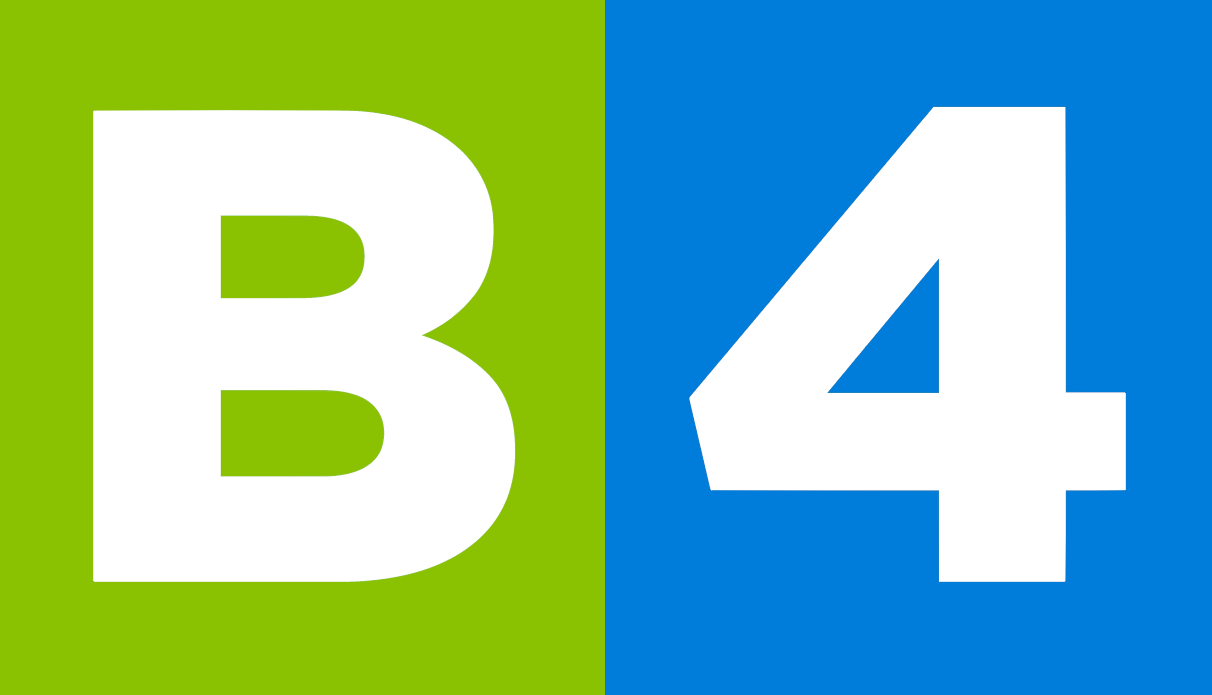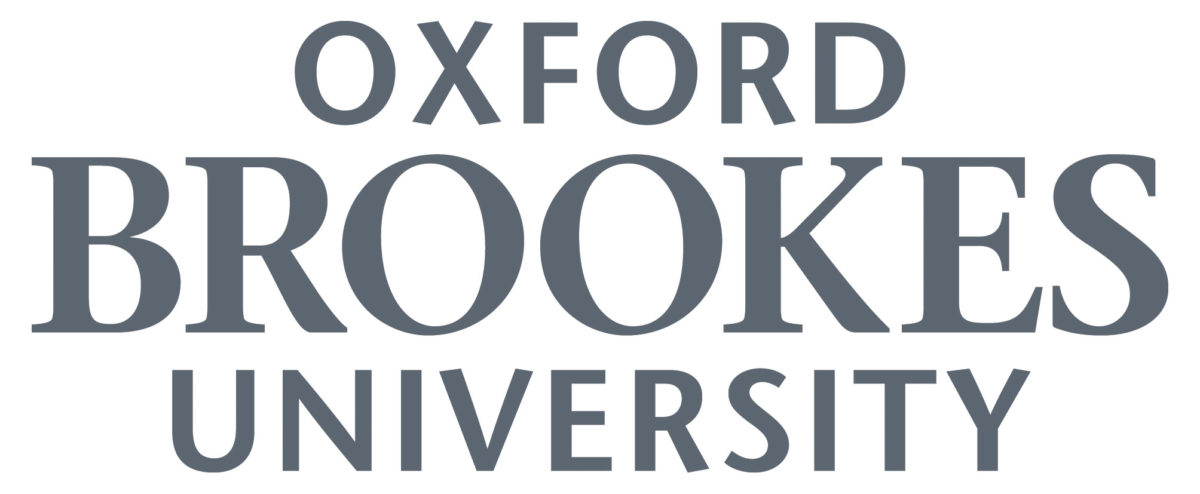
How do we educate business school students of the future?
Last month, our B4 podcast ‘The Sharp End’ saw Frank Nigriello, B4 Chairman and Group Director of Corporate Affairs, Unipart Group, conduct an in-depth interview with Tim Vorley, Pro Vice Chancellor, and Dean of Oxford Brookes Business School. The fascinating online discussion, was attended by other B4 business members, including Grant Thornton, OSEP and Oxford […]
Last month, our B4 podcast ‘The Sharp End’ saw Frank Nigriello, B4 Chairman and Group Director of Corporate Affairs, Unipart Group, conduct an in-depth interview with Tim Vorley, Pro Vice Chancellor, and Dean of Oxford Brookes Business School.
The fascinating online discussion, was attended by other B4 business members, including Grant Thornton, OSEP and Oxford Professional Consulting.
The school could be seen as creating the future business leaders for our country and beyond. But the question of how we educate business school students so that their education is more relevant when they enter the workforce continues to be a challenge for educators.
And not least for Professor Tim Vorley. His research focuses on entrepreneurship, enterprise, and regional economic development.
He currently leads the Innovation Caucus, which provides research to inform innovation policy and practice and he’s vice chair of the Small Business Charter that’s leading the delivery of the help to grow management programme for business schools across the UK.
Frank said that most businesses had spent the last two years protecting staff, processes, and their flow of products to customers as a result of the combination of this global pandemic, the UK’s exit from the EU and the impact of convergent technologies and asked how Oxford Brookes Business School was preparing its students for the fast-changing business environment?
“I started at Oxford Brookes in the middle of the pandemic,” said Prof. Vorley. “So, the good thing is I didn’t know Brookes before the pandemic and what I really got is a huge opportunity to try and create and cultivate change since I joined, looking forward with no looking back.
“We have repositioned the business to focus on our customers – our learners at all levels – to meet their needs.
“The biggest thing like with any business is actually understanding how those needs are changing the way in which they want to engage with us what their needs are. Teaching undergraduate and master’s students is the core of our business.”
Prof. Vorley said the Business School focused on three main things – experiential learning. enterprise and employability.
“We want everyone that walks through the door as a learner at Oxford Brookes to have real world experience. That means bringing businesses into the classroom and taking students out of the classroom.
“Enterprise is not just about entrepreneurship and starting a business. It’s a wider set of skills which we recognise those in the future workplace are going to need. It comes in under creativity, collaboration, teamwork and in critical thinking. We are looking to ensure the graduates that come from Oxford Brookes business school have those skills as they move into the workplace.
“And the third E, is one of these golden threads that runs through our education strategies around employability. So, from the day that we have our students join us at whatever level on whatever programme, we want them to be thinking about their future careers.”
He said the school was creating graduates who lead and not just helped them unlock change to transform their own futures, but also the futures of the organisations they join.
‘We recognise the world of work is changing. And a result, we need to change the world of education. We need to rethink about what we want our graduates to look like and how we help them to realise their potential. As they move into that new world of work.”
One of the ways that graduates are being taught to lead, is through the use of sustainable practices in firms.
In conjunction with Small Business Britain, the School has hosted a series of online workshops. This September’s cohort can access the programme free of charge and learn some of the basics over a six-week period.
For small businesses, it’s about understanding where to start. What does it look like for my business? So again, we are really proud that Oxford Brookes Business School is at the centre of this and that we’re working with small businesses in Britain in delivering that as well and many more cohorts to come on.
The School also boasts a professional education portfolio, which includes CPD short courses which are shaped around conversations with business to understand their business needs.
It is also one of the business schools in the UK that delivers a health degree programme to bring businesses into the business school. The School recognises that it is teaching managers who have never been to university, and it works to make them feel part of its community as the first stage on their learning journey.
It also recognises the costs associated with master’s programmes and that students are looking for value for money.
“Again, one of the big things we need to do is to keep innovating, and a university isn’t just an educator that takes degrees off the shelf. We design these and we’re work with the businesses, different industries, associations, and professional bodies to try and ensure the education we provide is relevant and up to date. But actually, we need to not just be where the sector is we need to be ahead of the sector”
Frank asked how the school prepared an MBA coming out of business school to going into and work for a larger organisation?
“I think that there’s very few individuals that go into any organisation big or smaller, independently have that huge splash,” said Tim.
“It’s very much about trying to think about how they can influence. Influence is hugely important in organisations. It’s about developing and cultivating that vision, doing it in an inclusive way, taking people on that journey with you.
Frank suggested that Oxford was a county of SMEs, with very few large companies and asked whether Tim thought Oxford Brookes Business School would become the “go to” place for SMEs to learn as well as for people to get an MBA?
Tim said the School had worked hard on repositioning itself and restructuring and looking at the programmes offered, from undergraduate to postgraduate.
“You’re exactly right, looking at whether we can expand that portfolio to meet the needs of regional businesses and I’m not in the business of build it and they will come, we need to know that we’re doing things that meet the needs of the businesses that we work with,” said Prof. Vorley.
This includes other opportunities that aren’t simply about education. This includes Knowledge Transfer partnerships, funded by Innovate UK (the government has underwritten the partnership and in part, the relationship between the university and the business.)
“We have an expert who works with academics that is then placed within the business in order to help that business grow. And we’ve seen a number of those at Oxford Brookes increase over the last two years.
“Our strategy and our goal are to work with more businesses to help them access that funding and then access to growth that hopefully will stem from that. So, we offer a whole variety of means with which we can start to engage with businesses more and more to help them realise their own growth ambitions.”
The full podcast of this episode of The Sharp End is available now and can be listened to here.
More in Education

Art and design students team up with top sustainable fashion designers...
Oxford Brookes University students gained real life fashion industry experience by creating and building a set for two top British designers as part of London Fashion Week 2024.

GCSE & A-Level English Literature & English Language with Cherwell College...
The Power of Studying English Literature and English Language in Oxford

Oxford Brookes Business School students partner with Oxfordshire FA to conduct...
Students at Oxford Brookes University have partnered with the Oxfordshire Football Association to conduct research into inclusivity, diversity and access to grassroots sport for young people.
From this author

Research, Innovation and Enterprise
Hello and welcome to the second edition of Research, Innovation and Enterprise: Shaping the Future, showcasing more of our colleagues’ work and research.

Wellbeing of Entrepreneurial Teams Questionnaire
There is still time to contribute toward our Wellbeing of Entrepreneurial Teams questionnaire. Well-being is not just about an individual’s life satisfaction, but is concerned with realising one’s full potential (eudaimonic well-being).

Have your say on the challenges to business growth in the...
They want to be clear on the barriers you are now facing to your future growth and what you believe could make a real and impactful difference in removing those barriers.


